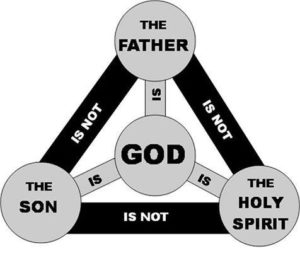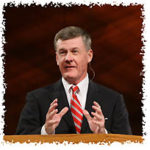 Article: Three Trinitarian Controversies Every Christian Should Know by Adriel Sanchez (original source here)
Article: Three Trinitarian Controversies Every Christian Should Know by Adriel Sanchez (original source here)
Adriel serves as pastor of North Park Presbyterian Church, a congregation in the Presbyterian Church in America (PCA). In addition to his pastoral responsibilities, he also serves the broader church as a contributor on the White Horse Inn radio program. He and his wife Ysabel live in San Diego with their three children.
It may surprise you to find out that, generally speaking, everyone in the “Trinitarian controversies” of the ancient church had some sort of doctrine of the Trinity. Worship of the Father, Son, and Holy Spirit was so entrenched in the liturgical life of the church that even those who denied the true deity of Christ still found themselves praying and singing to him! That Christ existed, and was divine in some sense, was not the primary question early on.
Throughout the history of the church, Trinitarian controversy has centered on how the Persons of the Trinity relate to one another. Here are three controversies every Christian should be aware of:
1. The Arian Controversy
Arius was a priest in Alexandria during the fourth century. Because of his views, he was excommunicated from the Egyptian church around 320AD. Arius taught that God was absolutely transcendent, and that as such could not have any genuine intersection with the created world.
Although the Arians believed Jesus was divine in some sense, they didn’t understand him to be divine in the same sense as the Father, who alone was the eternal God. Arians confessed that “God has not always been a Father,” and that “once God was alone, and not yet a Father, but afterwards he became a Father.” In other words, God the Son didn’t always exist, and at some point, came into being, making God a Father. This conclusion denies what’s called the eternal generation of the Son, a Christian doctrine that emphasizes the fact that the second Person of the Trinity has always existed—even before his incarnation as Jesus of Nazareth.
According to Arian doctrine, Jesus is the most preeminent creature created by God, but he’s still just an exalted creature! This is not very different from what some sects teach today, like the Watchtower Bible and Tract Society or Jehovah’s Witnesses.
2. The Modalist Controversy
Modalism is a third century Trinitarian heresy often associated with Sabellius of Rome.
The Modalists did not properly distinguish between the Persons of the Trinity; they taught that the Father and the Son were the same Person. Unlike the Arians, they believed in the essential deity of Christ, but they did a bad job of distinguishing him from the Father. In this understanding of the Trinity, the Father, Son, and Holy Spirit are simply different modes of the one God. The Father God of the Old Testament who revealed himself to the patriarchs is the same Person who took on flesh and suffered for mankind.
This failure to properly distinguish between the Persons of the Trinity involved Sabellius and his followers in another dangerous heresy called Patripassianism. This was the idea that the Father suffered on the cross with Jesus. The orthodox Christian view differed from this in that it taught that the Father and the Son participated in the Incarnation in distinct ways, and that only God the Son was incarnate, and suffered for sins.
Today, groups like the Oneness Pentecostal Church teach something similar to ancient Modalism.
3. The Filioque Controversy
Perhaps the most tragic of the Trinitarian controversies, the filioque controversy was at the heart of the split between Eastern and Western Christianity.
The word filioque is a Latin term that means “and the Son,” and it refers to an addition to the Nicene Creed in the section on the Holy Spirit. Originally the Creed stated, “And I believe in the Holy Spirit, the Lord and Giver of life, who proceeds from the Father.” Over time, the Western church began to include the word filioque after “Father,” so that the Creed stated “…proceeds from the Father and the Son.” This addition led to ecclesiastical debates about whether the inclusion of the filioque clause was in line with the apostolic faith.
In the Western church, men like St. Augustine taught that the Spirit proceeded from the Father and the Son.
The differences on this issue between the church in the West and the East were never resolved, however, and ultimately played a part in the Great Schism of 1054 AD, when Cardinal Humbert of Silva condemned the Patriarch of Constantinople. To this day, the church in the East confesses the Nicene Creed without the filioque clause, while the Western church maintains it.
These three controversies don’t exhaust the Trinitarian disputes of the last two thousand years, but they give us a glimpse into how important this doctrine is for the health of the church. In order to rightly worship God, we need to properly describe how he has revealed himself! The orthodox taught that the Son was equal to the Father (unlike the Arians), but that he was also distinct from the Father (unlike the Modalists). They based their teachings on the Scriptures, and the apostolic faith they had received through the liturgical life of the church. We need to be committed to those same Scriptures, and the proper worship of God, so that we too might rightly adore the Father, Son, and Holy Spirit.


